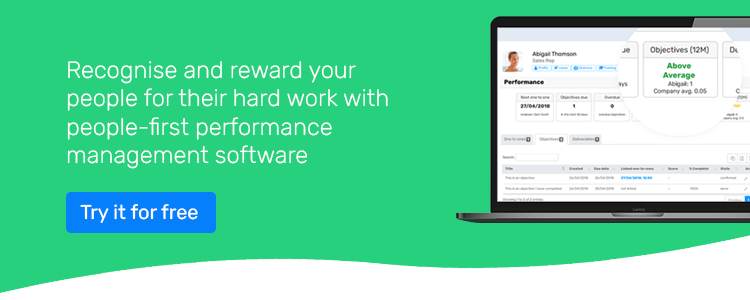After the shock of the Covid pandemic, it has never been more important to consider the impact of mental ill health in the workplace. A third of adults and young people say their mental health has deteriorated since March 2020, and it’s believed that the mental health impact of Covid will continue to be seen for some time.
This increased need for understanding around mental ill health means that an employer’s duty of care is increasingly important. Although there is some way to go before mental ill health is treated on a par with physical health, more and more employers are recognising its relevance and making sure staff mental health is looked after.
In the same way as you would with someone who has a physical illness, you can make adjustments within the workplace to allow a member of staff who has mental ill health to perform their role effectively.
As an overview, here are 5 reasonable adjustments you can make for employees suffering from mental health issues:
- Reduced working hours
- Workload adjustments
- Changes to their working environment
- Extra support from other staff
- Encourage conversations and build a plan
In this article we're going to discuss the importance of mental health in the workplace, what reasonable adjustments look like and how you can put these into action.
The importance of mental health in the workplace
The importance of maintaining good mental health cannot be underestimated. At any time, one in six adults will be suffering mental health issues. This can include conditions such as anxiety, depression, stress or even more serious ones like bipolar disorder or schizophrenia.
Taking care of staff mental health issues and supporting them through any difficulties isn’t just a sign you’re a good employer - it can actually be good for your business too. According to statistics, people with mental health problems contribute an estimated £226 billion to the UK economy each year, or 12.1% of the UK’s GDP.
This is as much as nine times higher than the economic cost of dealing with mental health at work. Yet a Deloitte survey found that 61% of the people who left their jobs in 2021 or who were planning to in 2022, cite mental health as the driving factor.
This fact is made all the more interesting when you consider that a whopping 86% of respondents to a survey organised by the Mental Health Foundation felt work was a key factor in supporting and protecting mental health.
Mental health - an employers' duty of care
As an employer you have a legal duty to support people with mental health problems, according to the Equality Act 2010. This act outlines an employer’s responsibility to take steps to make sure a disabled person, suffering substantial long-term impairment, has the same access to opportunities that involve keeping or gaining employment as a non-disabled person. And this applies to mental as well as physical health.
What are reasonable adjustments?
Adjustments are steps you can take, specific to a particular employee, so that employee can continue doing their job. Reasonable adjustments in the workplace are ones that are effective for the employee and but are also reasonable and not too costly or disruptive to the business.
As well as it being a legal requirement under the Equality Act 2010 for defined disabilities, including long-term and debilitating mental health, it’s good practice for businesses to make adjustments for anyone affected by mental health or stress at work.
Supporting employees with mental health issues can reduce sickness absence rates, increase staff retention and improve employee engagement – all things which have a positive impact on productivity.
5 reasonable adjustments you can make for mental illness
1. Working hours
One of the easiest things you can do if you know someone to be struggling with mental health is to adjust their working patterns. This may involve offering flexible working, allowing for different start and finish times or allowing them to work from home if suitable. It could also include allowing them time off for appointments, spacing breaks differently or restructuring holiday time so it is spread more evenly throughout the year.
According to the CIPD, the top three benefits of investing in health and wellbeing, including flexible hours, are better employee engagement, a better working atmosphere and reduced sickness absence.
2. Managing staff workloads
The top cause of stress-related absence at work is workload at 60%, with management style the second most common.
As a responsible employer you can help to support those with mental ill-health by assessing their workload. This might mean making adjustments to how much work you are expecting someone to do and assigning tasks to other staff members temporarily. It could also involve supervising the person in question more closely to assess the impact of their workload on them.
Other support you could offer would be to help them prioritise their work or focus on a single task at a time so they’re not overwhelmed. You could also consider a job share to reduce the pressure on them.
3. Physical changes to the working environment
The physical environment of your business may be impacting staff mental health. Do they work in an open plan office? Is it hard for them to concentrate with too much noise? What can you do about reducing noise and distractions?
It may be as simple as turning their desk around so they no longer have their back to other people, or it could be that they require their own office to work in. You might wish to consider creating a quiet space where they can take a break, reducing the pitch or volume of ring tones on phones or giving them more personal space.
4. Extra support from other staff
Creating a buddy or mentoring system can help someone who is struggling at work. This can be a formal or informal process.
Offering staff increased training can also help deal with issues of workload and feeling overwhelmed by supporting them further in the job they were hired to do.
You can offer greater human interaction and constructive feedback, so employees know when they are doing a good job and feel valued. Holding debriefs after difficult calls, customers or situations can also help allay the concerns of someone dealing with mental health issues - particularly stress or anxiety.
You could also offer mediation between colleagues if they’re having difficulties in communication or simply not getting on, or consider setting up a mental health group where people can air their worries.
5. Encourage conversations and develop a plan
Ultimately, the conversation on mental health starts with you and you need to foster a positive culture on the subject. People find it difficult to talk about mental health at work and unfortunately, there is still a stigma attached to it. But you can improve upon it by encouraging such conversations and normalising it.
When dealing with someone with a mental health issue, you should ask simple, non-judgemental questions, letting the person tell you how they are affected and what support they need.
You should treat each employee flexibly and don’t assume all symptoms are the same for everyone. Different staff will react in different ways to situations. You also need to be honest and clear with staff if there are specific concerns, and ensure confidentiality to build trust.
Mental health - an employers' duty of care benefits everyone
Developing a plan to deal with mental health in the workplace is vital, both a specific plan to help an individual employee and a more overarching plan on how you deal with mental health in general. If you'd like more support in understanding your duty of care to employees with mental ill health, you may benefit from working with a HR professional - see our list of approved consultants to find someone local to you.
.webp)
Author: Sarah Benstead
Sarah is a Product Marketing Specialist here at Breathe. Always innovating, she loves writing about product releases in an engaging & informative way. When she's not coming up with new ideas, she enjoys long walks with her dog, Clifford.





